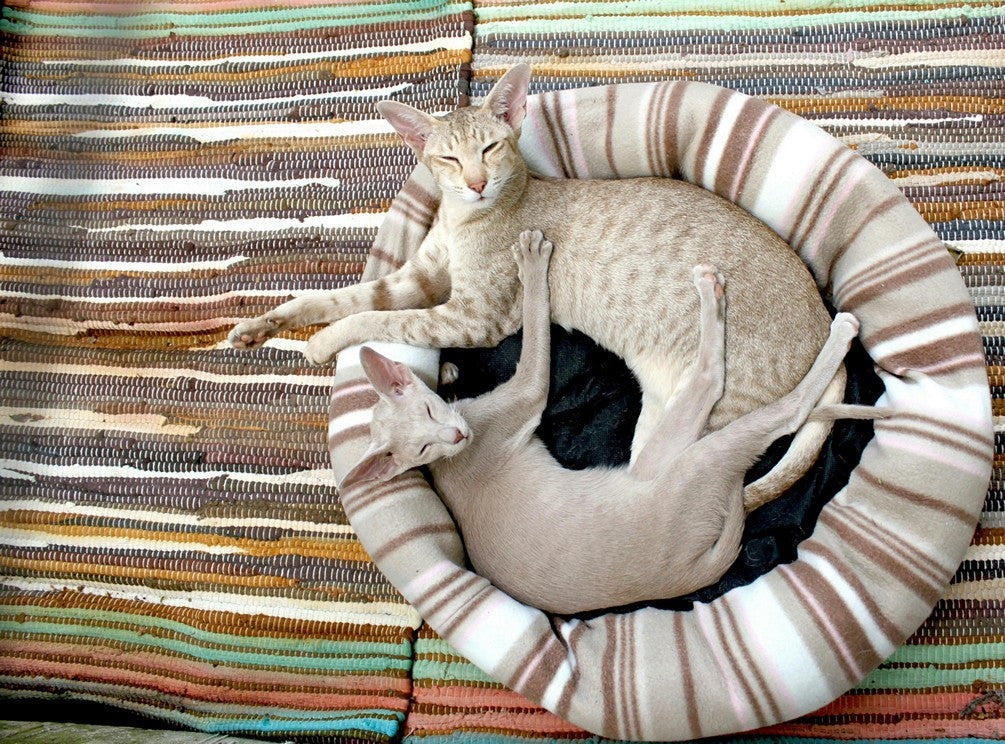In this Article
Bringing a new kitten into your home is always a moment of magic. But what if your home is already ruled by one (or several) feline monarchs? The introduction of a kitten into a multi-cat household can be a beautiful transformation—or a royal upheaval. With patience, understanding, and a bit of feline psychology, peace and harmony can reign once more.
Now, as some of our readers may already know, I live with only one cat — James, the true sovereign of my heart and home. His calm presence, his dignified routines, and his deep brown eyes that silently judge the world — they fill my days with love. Yet, I often find myself dreaming of welcoming a second whiskered soul into our lives.
Would James accept a little sibling? Would they curl up together or duel for the best sunlit spot? These questions linger in my heart. That’s why this topic is so personal to me — because I want to do it right. A peaceful friendship between animals is priceless, and I know how delicate it can be when one pet has been with you for years and another arrives as the new kid on the block.
So let’s dive into what it really takes to introduce a kitten into a home that already has cats — with empathy, strategy, and a bit of feline finesse.
The First Rule: Go Slow
Why time and space matter
Cats are creatures of habit and territory. Introducing a newcomer—especially a rambunctious kitten—without preparation is like tossing a snowball into a volcano. Give your current cats time to adjust by keeping the kitten in a separate room at first. This becomes their “safe space” to adapt to new sounds, smells, and the occasional paw under the door.
Scent: The Invisible Introduction
Let them "meet" through their noses first
Before your cats ever lay eyes on each other, let them exchange scents. Rub a soft cloth on the kitten and place it near your older cats’ sleeping area—and vice versa. This silent communication allows the cats to get used to each other’s presence without direct contact.
Supervised Visual Contact
Behind barriers, the peace begins
Once your resident cats are used to the new scent, allow them to see the kitten through a baby gate or cracked door. Expect hissing—it’s just a conversation in cat language. Short, calm sessions with treats and playtime help turn suspicion into curiosity.
The Gradual Merge
From “me and you” to “we”
Start allowing short, supervised interactions in neutral territory. Keep sessions positive—no chasing or ambushes. Reward good behavior with treats or praise. If one cat gets aggressive or anxious, gently separate and try again tomorrow. Let them build a relationship at their own pace.

Equal Love for All
Avoid feline jealousy
Make sure your current cats don’t feel dethroned. Give them one-on-one attention, keep routines steady, and don’t change their favorite nap spots. A new kitten should be an addition to the family—not a replacement.
Signs of Success
From wary glances to afternoon naps together
If your cats are eating in the same room, grooming near each other, or even curled up together—you’ve done it! Some cats bond instantly, others may take weeks or months. Be patient, celebrate small wins, and trust the process.

Final Thoughts from a Cat-Servant
Introducing a kitten to an established feline family may feel like conducting an orchestra of emotions. But with slow steps, clear boundaries, and a lot of love, you can create a home where every cat has a place to purr.
From our cat-loving hearts to yours,
— Anastasiia Romanenko and James 🐾


